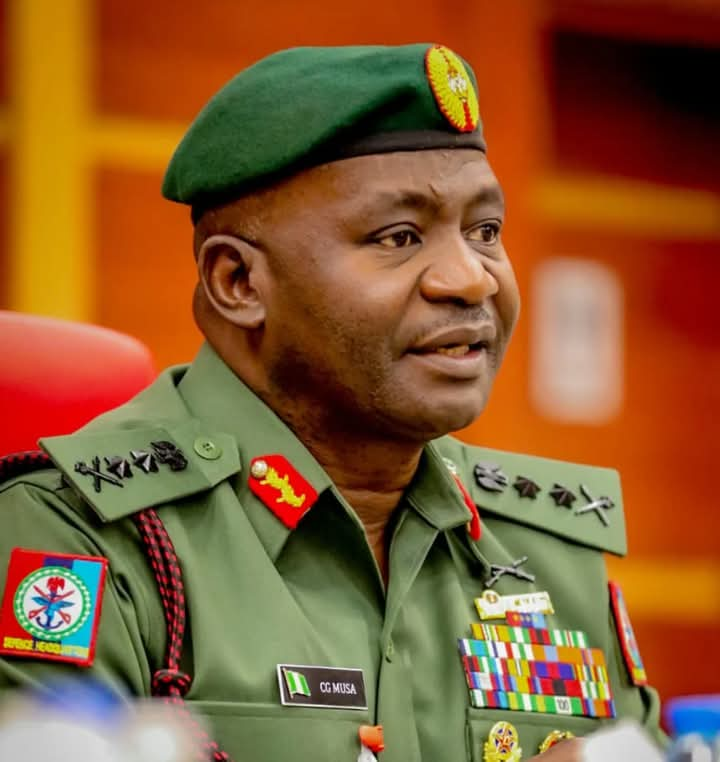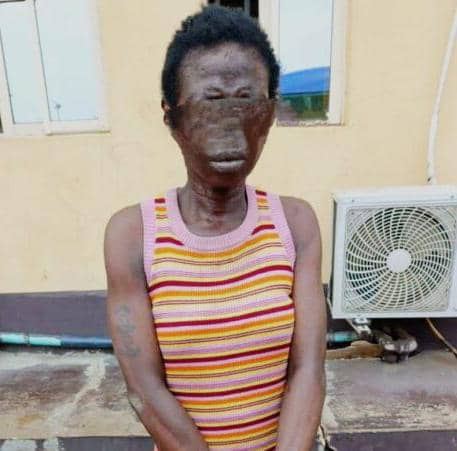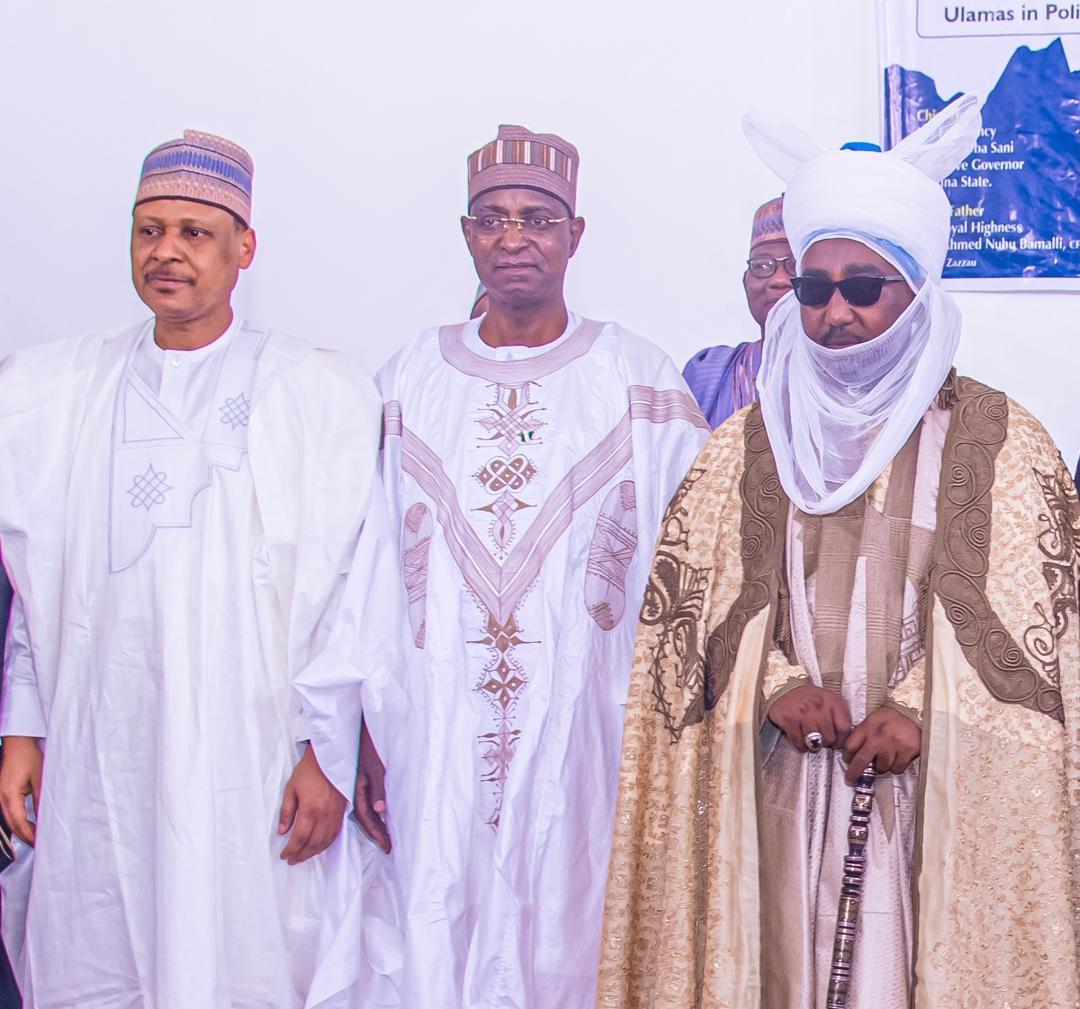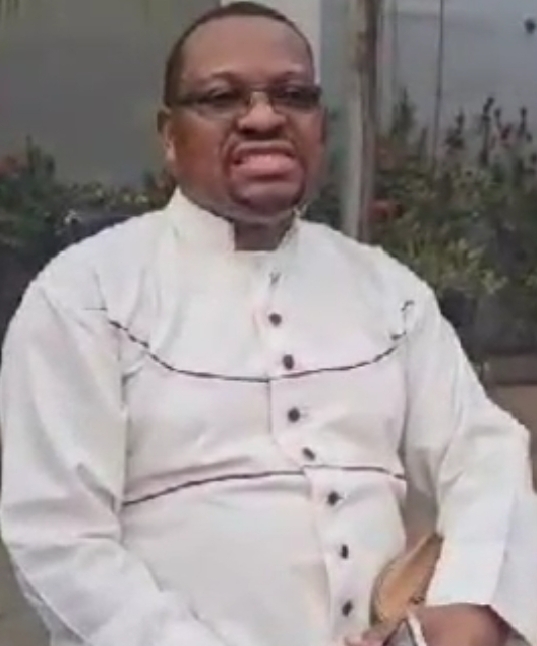Terror war: Public betrayal, our biggest setback, but we’re winning – CDS Musa. By Prof MK Othman

Terror war: Public betrayal, our biggest setback, but we’re winning – CDS Musa

This edition of Ebony Herald International Magazine features a compelling interaction between renowned columnist and Professor of Agricultural Engineering at Ahmadu Bello University, Zaria, Prof. M.K. Othman, and Nigeria’s Chief of Defence Staff, General Christopher Gwabin Musa, OFR. The discussion delves into the prevailing security situation in the country, offering insights into the challenges, strategies, and the way forward in safeguarding the nation.
Call to get a copy of Ebony Herald International Magazine for more details
Excerpts;

Question: How would you assess the security situation in the country now compared to before you were appointed?
Answer:
First of all, I would like to thank you and appreciate your time for visiting our headquarters. This office exists for all Nigerians, including members of the Nigerian Armed Forces. Our mandate is to protect the country.
Since we assumed office, by next month, June 2025, it will be two years, our most significant achievement, in my view, is the increased awareness among Nigerians. We have been able to make people understand that the security situation is a Nigerian challenge, not just one for the armed forces, security agencies, or government alone. It is a collective responsibility, and for us to effectively tackle it, we need everyone working together.

I served as Theatre Commander in the Northeast at one point, and one of the key factors in our success there was the cooperation of the populace. They provided timely information, which we were able to use effectively. Within the services, we used to have issues with inter-agency rivalry and lack of collaboration, but all that has changed. Now, we sit together, identify the problems, and address them.
Gradually, we are seeing improvements. Last year witnessed a bumper harvest despite security challenges, and this has helped ease food prices. Schools and markets are reopening. Kaduna and its environs, previously avoided, are now accessible. People can use the Abuja–Kaduna Expressway again, and train services have resumed. These are signs of progress. We are not yet where we want to be, but it is a work in progress, and we are moving in the right direction.
Question: What key strategies have you implemented to tackle insurgency, banditry, and kidnapping for ransom? How are you achieving these objectives?
Answer:
As I mentioned, we are employing both kinetic and non-kinetic approaches. The kinetic aspect involves direct military engagement. The non-kinetic involves good governance, public engagement, and awareness creation. We’ve realised that kinetic operations contribute less than 30% to the overall solution, while non-kinetic strategies account for about 70%.
We are engaging all stakeholders; communities, citizens, governors, local government chairmen, religious leaders, traditional rulers, market women, motor park operators, everyone. We make them understand that success depends on collective effort. The total number of security personnel nationwide isn’t enough to cover every location, so we need the public’s cooperation. Criminals and terrorists try to win over the hearts of the people. If the public doesn’t believe the government is with them, it becomes difficult.
That is why we are focused on awareness. With increased support, we can do more. We’ve improved our operations and upgraded our equipment, although one of our biggest challenges is that we don’t produce most of what we need. We have to buy almost everything, and even with available funds, it’s hard to procure due to global constraints like the Russia–Ukraine war.
There have also been diplomatic hurdles. At times, even with funds, we are denied access to military equipment, which negatively affects us. Thankfully, Mr. President approved the DICON Bill last year. This allows the Defence Industries Corporation of Nigeria to partner with Original Equipment Manufacturers (OEMs) to begin local production. That’s the way forward. Producing locally ensures control over quality and quantity. It will create jobs, reduce insecurity, generate foreign exchange, and allow us to supply neighbouring countries. It’s a win-win for Nigeria.
Additionally, the number of recruits has increased. The President has directed a ramp-up in recruitment to ensure more boots on the ground. He has also approved the procurement of large quantities of equipment—aircraft, drones, armoured personnel carriers (APCs), and more.
We’re working closely with the National Assembly to secure these approvals and collaborating with the judiciary and other arms of government. It’s all about thinking and acting as Nigerians, defending Nigeria. That’s the vision we are pursuing.
Question: Thank you very much. We are witnessing a resurgence of Boko Haram, particularly in the North-East. Why is this happening?
Answer:
The resurgence is linked to public awareness or the lack of it. Previously, these groups roamed freely, spreading propaganda that the government was doing nothing and that only they had good intentions or the correct religious interpretations.
Now, however, we have Imams delivering accurate teachings from the Qur’an, exposing how these terrorists have distorted religious messages to suit their own agendas. If you observe, many of their commanders live lavishly because they’re making money from the insurgency. To them, it’s business not a religious or spiritual cause.
This is why public awareness and media like yours are vital. They help expose the lies. We want the people to understand they’ve been deceived. We’re not out to kill anyone, we want them to lay down their arms and surrender. Over 120,000 have surrendered in the Northeast alone. Others from the Northwest and North Central are following suit because they are tired and realise they were misled into taking up arms and spilling innocent blood.
Our appeal is for Nigerians not to support them. These groups continue operating because some people still provide them with fuel, water, food, and other essentials. Worse still, they leak information about military operations. This kind of betrayal hampers our efforts. If we cut off their support network, they can no longer operate. That’s why we must all work together.
Question: There are allegations of human rights violations by the military. What are you doing about this?
Answer:
Some people raise these allegations to undermine the military. Let me state clearly: human rights issues often come up when the military starts succeeding.
We work closely with many foreign partners the United States, the United Kingdom, among others. They observe our operations and engage us on human rights matters. Our personnel receive training in these areas. We support humanitarian agencies, work with NGOs, and collaborate with UN organisations.
Our troops are well-trained, though mistakes can occur because we’re human. However, these are never intentional. When such issues arise, we investigate and take disciplinary action where necessary.
I recall the Reuters allegation of 10,000 forced abortions when I was Theatre Commander. We called for an independent investigation that lasted a year and a half. It turned out to be false. Yet, the organisation that made the allegation suffered no consequences. Our government and international bodies must take such defamatory acts seriously.
The Nigerian Armed Forces are professional and respectful of human rights. If we weren’t, in a conflict like this, we would have resorted to massive bombings. But we are fighting among civilians. These terrorists often hide within civilian populations, making it hard to distinguish them. That’s what makes asymmetric warfare so difficult. We often withhold strikes when we identify civilians nearby. That’s the restraint we exercise every day.
Question: Is there an issue with the Lakurawa group around Sokoto, Kebbi, and the North West/North Central axis?
Answer:
Yes, and we want Nigerians to understand this clearly: do not allow any foreigners to settle in your communities, even if they claim to be brothers or harmless.
That’s exactly how Boko Haram began. Some Nigerians invited Lakurawas from Mali, saying they were brothers. They funded and sheltered them. But when they could no longer fund them, these groups became aggressive. They began taxing the communities and, when they didn’t get enough, started stealing livestock and killing people. Only then did the communities raise the alarm.
This scenario keeps repeating itself. Communities must not accommodate unknown foreigners. No one can love or defend your home more than you. That’s the message. There’s a global increase in terrorist activities across the Sahel, and Nigeria must stay vigilant.
Question: Considering the recent assaults on military barracks, the killing of soldiers, and the seizure of military equipment by terrorists, is there a fear the military could be overwhelmed?
Answer:
What we’ve observed is a sharp increase in terrorist activities in the Sahel over the past three months. Countries like Mali, Niger, Burkina Faso, Cameroon, and even Benin Republic have been attacked. This pressure is pushing militants into Nigeria, thereby increasing attacks here as well.
We are responding. Just yesterday, I was in Maiduguri for discussions with our troops. We’re reinforcing manpower, upgrading equipment, and addressing these challenges. We are also strengthening bilateral relations with countries like Niger, Mali, Burkina Faso, Cameroon, and Chad, regardless of their status in ECOWAS. Their stability directly affects our own.
Question: Synergy within the military is key. How is the relationship among the three services?
Answer:
There is no problem at all now. The Army, Navy, and Air Force work hand in hand. There is no rivalry we are all Nigerians, and we see this as a joint responsibility.
We also collaborate with the police, DSS, NIA, DIA, civil defence, immigration, customs everyone. We hold regular meetings here to analyse issues and find solutions.
This team spirit has helped us achieve significant results. From the start, Mr. President made it clear that he wants unity of purpose. Just today, I returned from a meeting with him, where he reaffirmed the importance of synergy and expressed his satisfaction with our collaborative efforts.
Question; There is also an allegation of rotten eggs among both the military and other security personnel who are benefiting from the insecurity, and they will not want the war against terrorism to end. How are you addressing this issue?
Answer ;
I have mentioned that individuals from within contribute to the insecurity. Remember, we always have the good, the bad, and the ugly. The positive aspect for us is that we continuously monitor their actions; we identify them, apprehend them, and observe what they are doing. Consequently, we prosecute them. In all our regions, we maintain a standing court-martial. Anyone we catch is prosecuted. Numerous individuals have been jailed; we dismiss them, send them to prison, demote them, and punish them in various ways. We don’t take this lightly, and we consistently keep a close watch on our personnel.
We also encourage the public if they observe our officers misbehaving, they should report it to us instead of remaining silent. Do not confront the officer directly; instead, report the incident to the proper authorities. Note their names from the name tags at checkpoints or any other location, and report immediately so we can take swift action to apprehend the accused for investigation and prosecution. This serves as a deterrent to others.
Question; What kind of support (logistical, aerial, technological) has been most crucial for the government to prioritise to end the reign of terror in Nigeria?
Answer;
Yes, the most important thing I want to emphasise is that we don’t produce some crucial military equipment. However, since the President has signed the DICON bill, we are bringing in companies to initiate production. We will also purchase from them and build our capacity. We have begun producing items such as APCs and more. This is an ongoing effort, and we will continue to focus on these areas to enhance our capabilities.
The President is providing us with significant funding. You know, military, armed forces, and defence are not the only challenges; there are obstacles everywhere, so we need to prioritise because we can’t obtain everything we require. However, what we have been doing at our local level is building our engineers’ and technicians’ capacity to repair and maintain the vehicles even those that have been damaged. We can bring them in and fix them again.
Question. Are the military being overwhelmed?
Answer;
Not at all. Like I said, they always look for a soft spot like a village and attack. But what is also making our job a bit more difficult is the lack of infrastructure. That’s why I’m talking about the non-kinetic approach, which is not the military’s responsibility. We don’t have roads, and these guys know that.
So, they plant improvised explosive devices (IEDs), and once you enter the area with IEDs, everybody could die. If you go to hospitals, you’ll see soldiers with legs cut, hands cut so many terrible injuries. So even when we get intelligence, we must proceed cautiously because of IEDs.
We need someone on the ground with a handheld detector, going ahead. Just imagine moving like that for 10 kilometres. That’s why people sometimes say, “We called them, and they’re not coming.” But if soldiers rush in, they will die so they have to go slowly.
It’s one of the issues we discussed with the President: our governors should view this aspect as part of the dividends of democracy namely, the provision of roads. If there are roads, it will make our job easier. Reinforcement and support response times will improve, and market access will be easier.
Now, imagine transporting tomatoes from the North to the South. Normally, it should be cheap. But due to transportation and poor roads, the cost becomes significantly higher in Lagos. Therefore, if we have good roads, it will reduce cost and help decrease insecurity.
Question: There are still some villages that are under the control of bandits. How are you addressing that?
Answer;
Like I said earlier, our people should stop accommodating them. I’ll give you an example: one of the bandits’ leaders was injured and taken to a hospital in a village. By the time we received the information and got there, the villagers had already evacuated him from the hospital room because they are getting peanuts from the bandits.
That’s why we say that if the government does more, the people will not be enticed by this kind of money. That’s why the non-kinetic aspect is very important good governance. You can see that the North lacks infrastructure, no schools, no hospitals, no water, no electricity. These are the real challenges.
Question; What about the issue of security votes?
Answer;
Well, I can tell you the truth: all the funds we receive are paid as and when due to cover our soldiers’ allowances and feeding. We feed them well, although there may be one or two complaints here and there. However, we take action when necessary.
Now that costs have gone up significantly, these are the challenges we are grappling with. Nevertheless, we are not doing badly.
Question: Lastly, what is your message for Nigerians?
Answer :
For Nigerians, it is crucial that we love ourselves more. I had the opportunity to travel abroad, and in most countries, people take pride in themselves and their country. In Nigeria, however, I see that some people are happy when soldiers are killed, and I can’t understand why. They celebrate on social media. But when we kill the terrorists, nobody talks about it; they remain silent.
So, what is the aim? Why celebrate when soldiers are killed? They don’t realise that these soldiers are the shield between them and the terrorists. If all the soldiers are killed, they will be the next victims. They fail to see that the soldiers protect their ability to go to the farm, school, church, or mosque by standing guard day and night.
I just returned from Maiduguri, where the temperature reaches 44 degrees. Soldiers endure the sun, rain, dust, and all kinds of weather, making sacrifices. They have left their families some haven’t seen their children in three to six months. So, when I see someone rejoicing over a soldier’s death, I am deeply disturbed. I say no.
When the terrorists are done with the soldiers, civilians will be next. However, when you support the soldiers, pray for them, and commend them, they will be motivated to do even more.
Therefore, I appeal to Nigerians and to those aiding terrorists, directly or indirectly. Some commercial drivers take fuel to them. Some carry food. Some even bring women to them, just for money which is blood money. If we catch anyone doing so, we will treat them like a terrorist.
Thank you very much.
Thank you for the opportunity.




